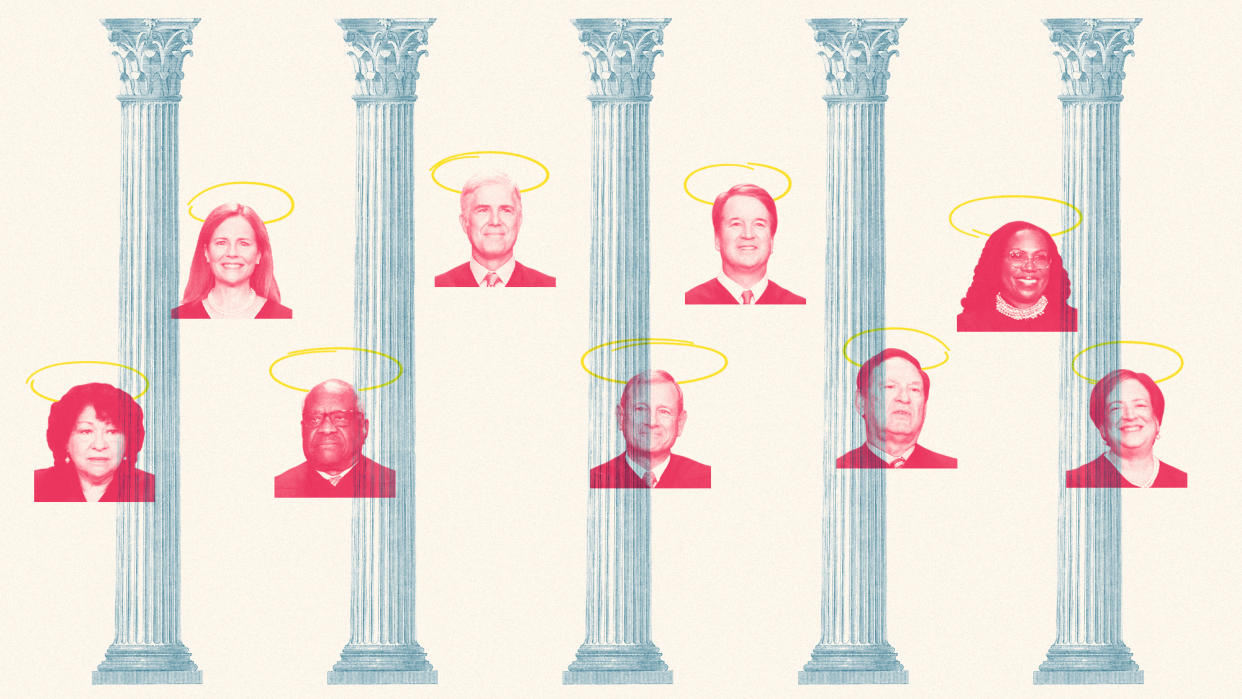The Supreme Court finally has a code of ethics. Will it matter?

The United States Supreme Court on Monday took the rare and extraordinary step of addressing external criticism of its ordinarily deeply private workings, announcing it had issued a "Code of Conduct" for its justices in a one-sentence press release, capping off months of debate, defiance, and a steady drip-drip-drop of scandalous disclosures (and lack thereof) over various ethical concerns for the traditionally unassailable members of the court.
As the court stressed in a brief preamble to the code, the 15-page guidelines are not a new set of rules being imposed upon a previously unconstrained bench of justices. Instead, the body had long been operating under the "equivalent of common law ethics rules" that were "derived from a variety of sources" — the code is merely the "codification of principles that we have long regarded as governing our conduct" in the hopes of clearing up any "misunderstanding" over what, if any, guidelines applied to the most powerful jurists in the nation.
In that context, the subsequent guidelines are fairly straightforward and unsurprising, dealing largely with how justices should comport themselves as representatives of the court, under what circumstances they should recuse themselves, how to approach business and civic responsibilities outside the scope of their position on the court, and other, similar concerns. Perhaps most crucial, however, is not what the document contains, but what it omits: any mechanism for ensuring the guidelines are followed. While all nine justices have signed onto this code of conduct, its lack of enforcement structure has raised questions as to whether this "codification" will actually matter in practice.
What the commentators said
For as much as the main takeaway is that "the code is trying to be relatively specific about what justices can and cannot do," the fact that it has no enforcement process means "it's also kind of toothless," National Public Radio's Ari Shapiro and Nina Totenberg explained. Citing the progressive group Take Back the Court, Totenberg said that with "53 uses of the word should and only six of the word must" the document, important as it may be, still "reads a lot like a friendly suggestion" more than anything else.
if the goal was to impose "meaningful ethical standards on life-tenured justices," Balls and Strikes deputy editor Madiba Dennie agreed, then "the code is a total failure." Given the Justices' aforementioned concerns over being misunderstood, the document is instead best thought of as "a PR tactic aimed at getting the public to stop bothering John Roberts." In that sense, the tactic does not seem to be working on some of the court's fiercest critics, including Sen. Sheldon Whitehouse (D-RI), who praised the new code as a "long-overdue step" in a press release but criticized its lack of enforcement structure, noting that "the honor system has not worked for members of the Roberts Court" so far.
Those complaining about a lack of enforcement mechanism are missing the point, countered National Review's Dan McLaughlin, who noted that the "same can be said of the Senate and the House" in which lawmakers are "responsible for the discipline of their own members." In spite of their lifelong appointment, "a justice who loses the respect of his or her colleagues has already lost much of his or her power."
What next?
For people concerned about the new code's ambiguities and vagueness "proof of the pudding will come when we see the level of commitment the justices bring to compliance," New York University law school professor and ethics expert Stephen Gillers told The Washington Post.
In so much as these guidelines are "step one," agreed Sen. Whitehouse in a video posted to X, formerly Twitter, "that job is not done" until the court can answer "really really basic" questions such as whether there is "a place where you can file a complaint against a justice? Who sorts out the ridiculous complaints from the legitimate ones?" and will the public see a final report of any subsequent investigation.
Ultimately, the Senate Judiciary Committee may chose to continue its own push for an ethics policy for the court, with Committee Chair Sen. Dick Durbin (D-Il) telling Politico he's "still reviewing” the new code.

